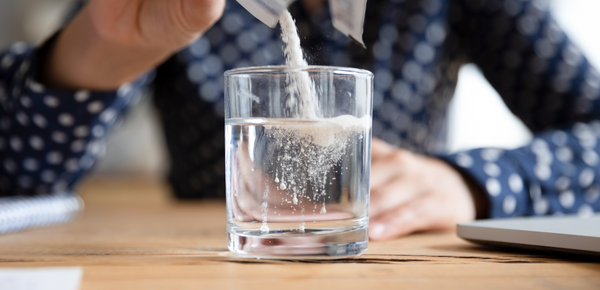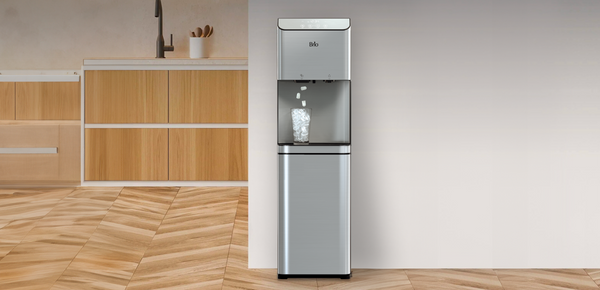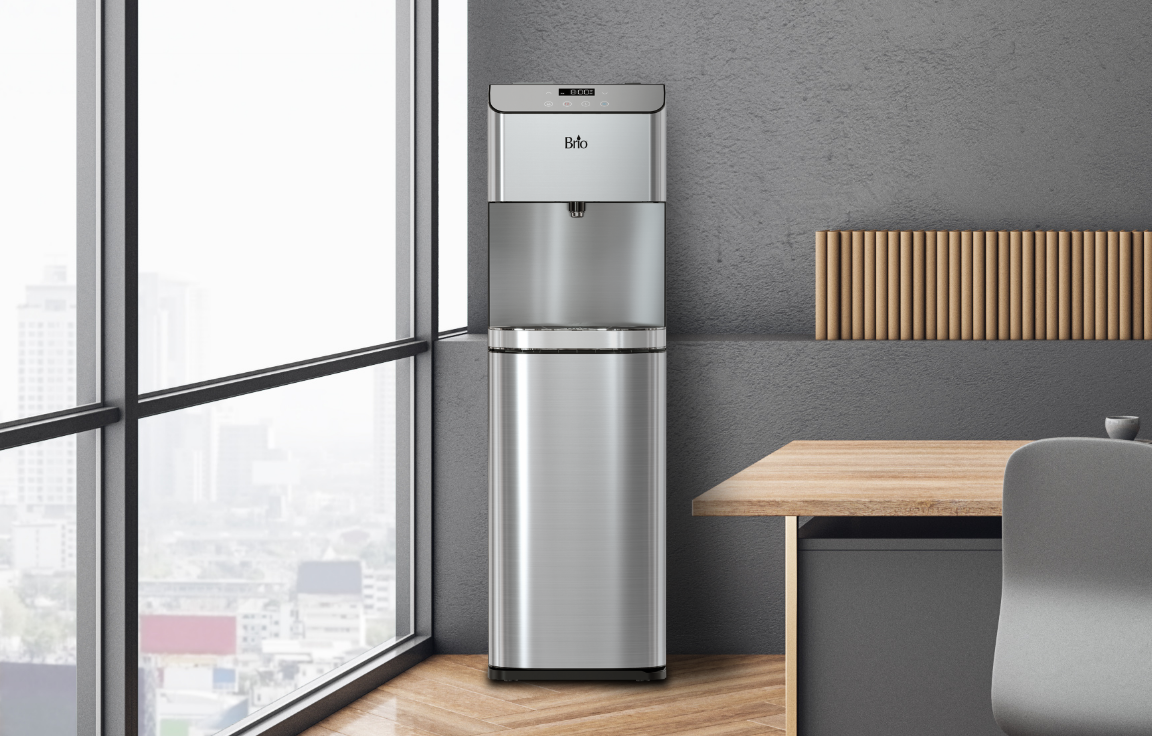For all you fitness enthusiasts out there striving to boost your performance and muscle growth, creatine supplementation has become a go-to choice. But while creatine offers fantastic benefits, keeping up with hydration is key to unlocking its full potential and staying healthy.
If you’re wondering how much water to drink on creatine, let’s look at best hydration practices for integrating this magical muscle enhancer into your fitness routine.
What is creatine, and who is it for?

Creatine is a natural compound found in our muscles. It plays a key role in energy production during intense activities like lifting weights or sprinting. Think of it as your body’s secret weapon for boosting performance and powering through those tough workouts!
Who can benefit from creatine? Well, the short answer is: almost everyone! Whether you’re a gym buff looking to increase muscle strength and power, an athlete aiming to improve performance on the field, or someone who just wants to get the most out of their workouts, creatine could be your new best friend.
Creatine isn’t just for hardcore fitness fanatics, though. It’s also great for anyone looking to enhance their overall health and well-being. From improving cognitive function to supporting heart health, creatine has a wide range of potential benefits that can help just about anyone feel their best.
What are the benefits of taking creatine?
Creatine supplementation offers a myriad of benefits for athletes and fitness enthusiasts, including:
1. Enhanced muscle strength and power
Creatine has been shown to increase muscle strength and power, allowing individuals to lift heavier weights and perform at a higher intensity during workouts.
2. Improved exercise performance
By replenishing adenosine triphosphate (ATP) stores in muscle cells, creatine can delay fatigue and improve overall exercise performance, particularly during high-intensity, short-duration activities like weightlifting and sprinting.
3. Muscle growth and recovery
Creatine supplementation may promote muscle growth and aid in recovery by helping protein synthesis and reducing muscle damage following intense exercise.
4. Increased brain power
Recent studies indicate that creatine might offer cognitive advantages, potentially boosting memory and reducing symptoms of concussions or traumatic brain injuries. However, research in this area is still limited compared to the extensive studies on creatine’s effects on muscular fitness.
How do I take creatine?

Taking creatine is super-easy! Most people take creatine in the form of a powder that you mix with water or juice. You can also find it in capsules or tablets if that’s more your style.
Phase 1: “loading”
To start, you’ll typically do what’s called a ‘loading phase’, where you take a higher dose of creatine for about a week to saturate your muscles. This usually involves taking around 20 grams of creatine per day, split into smaller doses throughout the day.
Phase 2: “maintenance”
After the loading phase, you can switch to a “maintenance dose”, which is usually around 3-5 grams per day. This smaller dose helps to keep your muscles saturated with creatine over time.
When do I take creatine?
Some people like to take creatine before a workout to help boost performance, while others prefer to take it after a workout to aid in recovery. Ultimately, it’s up to you to find what works best for your body and your routine.
Oh, and don’t forget to drink plenty of water when you’re taking creatine! Staying hydrated is key to getting the most out of your supplement and keeping your body functioning at its best.
So, just how much water should I drink with creatine?

Creatine works by increasing the body’s stores of phosphocreatine, which is used to rapidly produce ATP, the primary energy source for muscle contractions. This increase in ATP availability allows muscles to perform better during short, intense bursts of activity, such as weightlifting or sprinting.
Research suggests that creatine supplementation may increase the body’s need for water, as it draws water into muscle cells, leading to increased cell volume and improved muscle hydration, which can further enhance performance and recovery. So, to fully reap the benefits of creatine, proper hydration is key.
Eight recommended glasses isn’t enough
The water you drink alongside your creatine dose is just a piece of the hydration puzzle – you’ve got to think about how much water you’re drinking overall each day. While the standard advice is to aim for eight glasses of water a day, that might not be enough if you’re active or taking creatine.
A simple way to figure out how much water you need each day is to drink half your body weight in ounces. For example, if you weigh 150 pounds, you’d want to aim for about 75 ounces, or around 9.5 cups, of water daily.
Drink 12-16 cups if you’re working out and using creatine
If you’re adding creatine to your routine, the water you drink with your creatine dose should be on top of your usual daily water goal. The amount of water you need can vary based on things like your size, activity level, and gender.
But generally, shooting for at least 3 to 4 liters of water, or 12 to 16 cups, per day is a good idea, especially if you’re working out and using creatine.
Don’t forget to replace the water you lose
Not drinking enough water can mean your creatine doesn’t work as well, which could leave your muscles feeling a bit fatigued. And don’t forget to drink extra water to replace what you lose during your workouts.
If you’re not replacing the water being pulled into your muscles, there might not be enough left for other important stuff your body needs to do. So, keeping up with your hydration game is key to making the most of your creatine and feeling your best overall.
Can using creatine cause dehydration?

While creatine is generally considered safe when used as directed, dehydration can be a potential concern for individuals supplementing with creatine. Taking creatine with diuretics, for example, may lead to dehydration. Dehydration occurs when the body loses more fluids than it takes in, leading to a range of symptoms such as:
- Dark urine
- Dry mouth and thirst
- Fatigue and weakness
- Headaches
- Dizziness or lightheadedness.
To minimize the risk of dehydration, it’s essential to prioritize hydration and monitor fluid intake, especially during periods of increased physical activity or creatine supplementation.
Should I be concerned about creatine and water retention?

Creatine supplementation can cause some level of water retention in the body. This is because creatine pulls water into your muscles to enhance their size and strength. While this can lead to a slight increase in overall body water retention, it primarily occurs within the muscle cells rather than causing bloating or puffiness in other areas of the body.
It’s a natural part of how creatine works and is generally considered a beneficial effect for enhancing muscle performance and appearance.
How to stay hydrated

Maintaining proper hydration doesn’t have to be complicated. Here are some simple strategies to help you stay hydrated throughout the day:
- Invest in limitless access to refreshing cold water after an intense home workout with the Brio Moderna Ice Dispenser & Bottom Load Water Cooler.
- Carry a reusable water bottle and sip on fluids regularly.
- Monitor urine color to gauge hydration status (pale yellow to clear is ideal).
- Include hydrating foods in your diet, such as fruits and vegetables.
- Limit consumption of dehydrating beverages like alcohol and caffeinated drinks.
- Adjust fluid intake based on activity level, temperature, and sweat rate.

Incorporating creatine into your fitness routine can offer significant benefits for muscle strength, power, and overall performance. However, to maximize the effects of creatine and minimize the risk of dehydration, maintaining proper hydration is essential. Follow these guidelines and stay mindful of your fluid intake to support your fitness goals and enjoy the full benefits of creatine supplementation.
Always consult your physician or other qualified healthcare provider to determine the appropriateness of this information.













































































